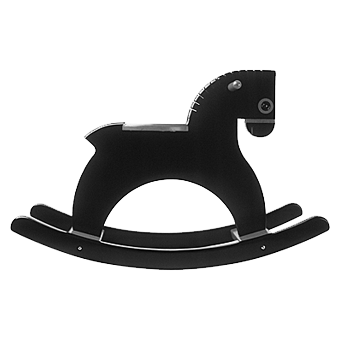“Well – I suppose,” she said slowly and bitterly, “it’s because your father has no luck.”
The boy was silent for some time.
“Is luck money, mother?” he asked, rather timidly.
“No, Paul. Not quite. It’s what causes you to have money.”
“Oh!” said Paul vaguely. “I thought when Uncle Oscar said filthy lucker, it meant money.”
“Filthy lucre does mean money,” said the mother. “But it’s lucre, not luck.”
“Oh!” said the boy. “Then what is luck, mother?”
“It’s what causes you to have money. If you’re lucky you have money. That’s why it’s better to be born lucky than rich. If you’re rich, you may lose your money. But if you’re lucky, you will always get more money.”
“Oh! Will you? And is father not lucky?”
“Very unlucky, I should say,” she said bitterly.
The boy watched her with unsure eyes.
“Why?” he asked.
“I don’t know. Nobody ever knows why one person is lucky and another unlucky.”
“Don’t they? Nobody at all? Does nobody know?”
“Perhaps God. But He never tells.”
“He ought to, then. And are’nt you lucky either, mother?”
“I can’t be, it I married an unlucky husband.”
“But by yourself, aren’t you?”
“I used to think I was, before I married. Now I think I am very unlucky indeed.”
“Why?”
“Well – never mind! Perhaps I’m not really,” she said.
The child looked at her to see if she meant it. But he saw, by the lines of her mouth, that she was only trying to hide something from him.
“Well, anyhow,” he said stoutly, “I’m a lucky person.”
“Why?” said his mother, with a sudden laugh.
He stared at her. He didn’t even know why he had said it.
“God told me,” he asserted, brazening it out.
“I hope He did, dear!”, she said, again with a laugh, but rather bitter.
“He did, mother!”
“Excellent!” said the mother, using one of her husband’s exclamations.
The boy saw she did not believe him; or rather, that she paid no attention to his assertion. This angered him somewhere, and made him want to compel her attention.
He went off by himself, vaguely, in a childish way, seeking for the clue to ‘luck’. Absorbed, taking no heed of other people, he went about with a sort of stealth, seeking inwardly for luck. He wanted luck, he wanted it, he wanted it. When the two girls were playing dolls in the nursery, he would sit on his big rocking-horse, charging madly into space, with a frenzy that made the little girls peer at him uneasily. Wildly the horse careered, the waving dark hair of the boy tossed, his eyes had a strange glare in them. The little girls dared not speak to him.
When he had ridden to the end of his mad little journey, he climbed down and stood in front of his rocking-horse, staring fixedly into its lowered face. Its red mouth was slightly open, its big eye was wide and glassy-bright.
“Now!” he would silently command the snorting steed. “Now take me to where there is luck! Now take me!”
And he would slash the horse on the neck with the little whip he had asked Uncle Oscar for. He knew the horse could take him to where there was luck, if only he forced it. So he would mount again and start on his furious ride, hoping at last to get there.
“You’ll break your horse, Paul!” said the nurse.
“He’s always riding like that! I wish he’d leave off!” said his elder sister Joan.
But he only glared down on them in silence. Nurse gave him up. She could make nothing of him. Anyhow, he was growing beyond her.
One day his mother and his Uncle Oscar came in when he was on one of his furious rides. He did not speak to them.
“Hallo, you young jockey! Riding a winner?” said his uncle.
“Aren’t you growing too big for a rocking-horse? You’re not a very little boy any longer, you know,” said his mother.
But Paul only gave a blue glare from his big, rather close-set eyes. He would speak to nobody when he was in full tilt. His mother watched him with an anxious expression on her face.

